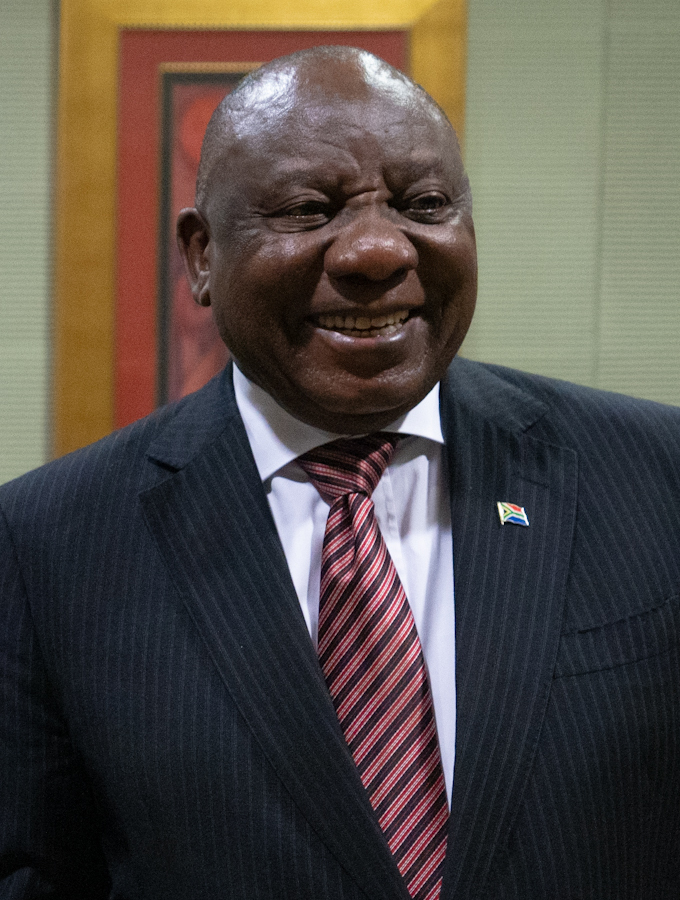JOHANNESBURG, (Reuters) – South African President Cyril Ramaphosa was re-elected leader of the governing African National Congress (ANC) today, overcoming the “Farmgate” scandal and paving the way for him to contest the presidency again at 2024 elections.
Ramaphosa’s political future had been hanging in the balance earlier this month after a report by a panel of experts found preliminary evidence he may have violated the constitution over a stash of foreign currency hidden at his private game farm.
He has denied wrongdoing over the scandal, which has been dubbed “Farmgate” by the media, and challenged the report in court. He has not been charged with any crime, but some opponents have called for his resignation.
Ramaphosa beat former health minister Zweli Mkhize in a ballot at a party gathering in Johannesburg, securing a second five-year term as ANC leader and suggesting continuity in economic policy.
Ramaphosa won around 57% of the votes against Mkhize’s 43%, while Ramaphosa’s allies also took the top seats in the party leadership.
The announcement of Ramaphosa’s victory was greeted by wild cheers from his supporters in the large conference hall who were clad in ANC-branded tracksuits, T-shirts, caps and jackets in the party’s black, green and gold colours.
South Africa’s rand, banking stocks and local sovereign bonds also made gains after Ramaphosa’s win.
Ramaphosa and Mkhize shook hands on stage after the results were announced, as delegates sang, danced and whistled to celebrate the result.
Mkhize was health minister during the COVID-19 pandemic, until Ramaphosa put him on special leave last year over after allegations his department irregularly awarded contracts to a communications company controlled by his former associates.
Mkhize has denied wrongdoing over the contracts.
In other ballots, ANC chairman Gwede Mantashe retained his position while Fikile Mbalula was elected secretary-general, the official in charge of the day-to-day running of the party.
The “Top 7” group of the ANC’s most senior officials is now more staunchly pro-Ramaphosa than the group that emerged from the 2017 conference where Ramaphosa won the top job for the first time.
Ramaphosa’s only overt opponent in the Top 7 is first deputy secretary-general Nomvula Mokonyane. But her influence will be limited by the fact that the secretary-general and second deputy secretary-general are Ramaphosa backers.
“The outcome of the 2022 conference has broken the political impasse that arose in the 2017 conference and signals a near obliteration of internal opposition to the … agenda that President Cyril Ramaphosa has been championing,” said Ongama Mtimka, lecturer and political analyst at Nelson Mandela University.
ECONOMIC CONTINUITY
South Africa’s next general election is due in 2024, following which parliament will choose the president. The ANC has won majority of seats at every vote since multi-racial elections began in 1994.
“I’m very happy,” said Chana Pilane-Majake, a delegate from Gauteng province, where Johannesburg and the capital Pretoria are located, pausing after a chorus of singing and clapping after Ramaphosa was declared the winner.
“We admit it has not been perfect over the past five years… That’s why (he) needs a second term: to conclude what has been started.”
Siphiwe Mazibuko, a delegate from KwaZulu-Natal (KZN) province, which contains many Ramaphosa opponents and is the home turf of former president Jacob Zuma, called for party unity after the vote.
“Zweli Mkhize was my preference,” Mazibuko said. “But we accept the result. Now it’s over the party needs to be united.”
Finance Minister Enoch Godongwana told reporters Ramaphosa’s re-election pointed to continuity in economic policy.
Cristian Maggio, head of portfolio strategy at TD Securities in London concurred, saying “this is positive from a market viewpoint as it safeguards (the) status quo against the negatives of a potentially more populist policy had Ramaphosa lost.”

